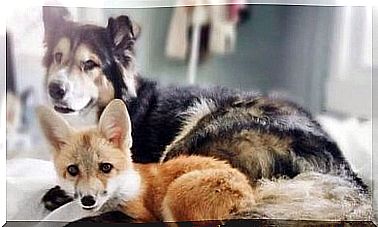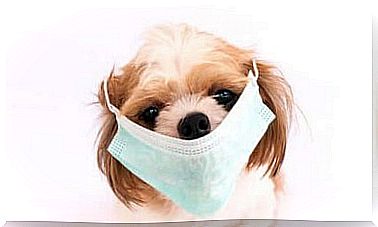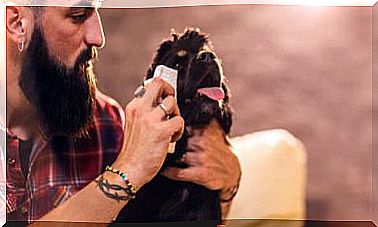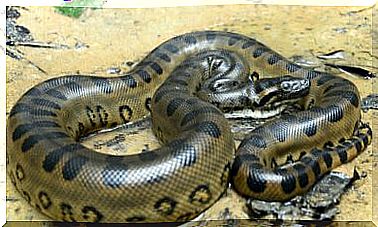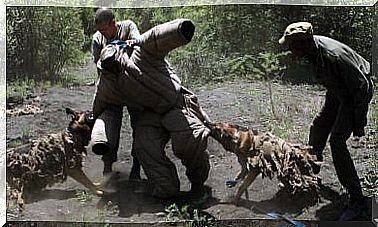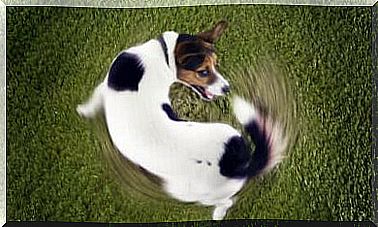Can Your Dog Give You Salmonella?
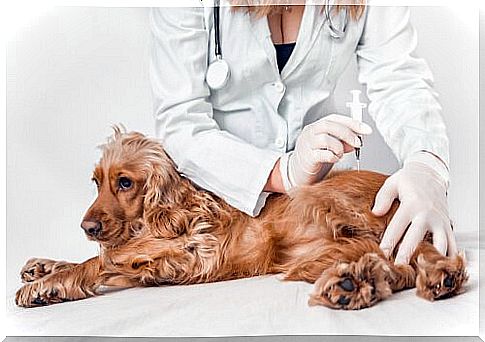
Salmonellosis is caused by bacteria and affects both humans and pets. In this article, we’ll tell you what you should know about this disease and explain if your dog can give you Salmonella.
Salmonella in Dogs: What You Should Know
Salmonella bacteria can invade dogs’ bodies through food that has not been washed properly, through contaminated water, or through the feces of another infected animal.
Many dogs that maintain a raw diet are vulnerable to this disease, as are those who suffer from malnutrition or immune problems.
Animals with intestinal parasites, or those that live in an unhealthy state, are also more likely to suffer from salmonellosis. Puppies and elderly dogs are other risk groups for this infection.
The main symptoms of this bacterial infection are diarrhea, vomiting and fever. If not treated in time, the animal can suffer from dehydration as well as abscesses in the liver, lungs or kidneys (if the bacteria enter the bloodstream).
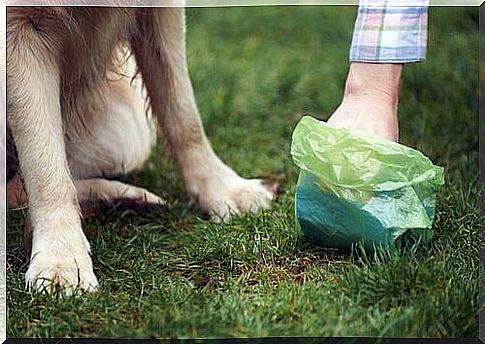
As Salmonella is often resistant to many of the common antibiotics, professionals recommend this treatment – with sulfonamides or quinolones – only for seriously ill dogs. In the rest of the cases, fluid replacement and a healthy diet are usually sufficient.
Can my dog pass me Salmonella?
As a first step, we have to prevent our pet from getting infected with Salmonella . For this, it is necessary to wash the food he consumes well and, if we give him raw meat, we must make sure that it comes from a hygienic place.
You should also pay attention to your dog’s behavior when he goes for a walk or when he is in contact with other pets. Prevent him from smelling and eating other people’s feces or drinking water if the container is not clean.
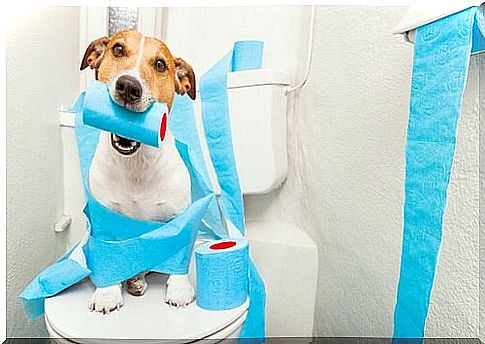
Salmonellosis is a disease considered a ‘zoonosis’. This means that it can be transmitted to humans. It is for this reason that we must be very careful with the hygiene of the house, whether or not a pet is infected (or if we do not yet know).
It is important to clean the dog’s feces on the same day, wearing gloves and sealing the garbage bag tightly. Disinfecting areas where the animal usually evacuates is also another useful preventive measure.
Also, after you’ve finished handling your dog’s droppings and faeces, it’s critical to wash your hands thoroughly. We also recommend that you do not allow your pet to ‘kiss’ you on the face and that, after playing with him, use an antibacterial soap.
Believe it or not, dogs and cats are two of the main carriers of Salmonella . On the other hand, if you have turtles or birds as pets – including chickens – you should take the same precautions.
Therefore, the answer to the question as to whether your dog will give you Salmonella is a categorical ‘yes’. However, it is all a matter of avoiding as much contagion sources as possible and increasing hygiene measures at home.
That way, you can keep salmonellosis away from your pet and your entire family!
